CATEGORIES
Categories
Latest Stories
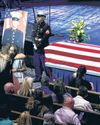
U.S. Arrests Militant Involved in Bombing
U.S. says Afghan helped plan 2021 deadly attack at Kabul airport

Airports Hope for Ravenous Fliers Before Departure
Hungry travelers may determine the future of airport finance.

Adnoc, OMV to Form Petrochemical Giant
Abu Dhabi's Adnoc and Austria's OMV reached an agreement to combine their petrochemical businesses and subsequently acquire Canada's Nova Chemicals to form a giant with a combined value of about $60 billion.

Asia's Defense Stocks Climb On Hopes for EU Spending
Defense stocks in key Asian markets jumped on Tuesday, buoyed by expectations that European nations will boost security spending amid fears that the U.S. could reduce its military presence.

Home Builders Anticipate Rise in Construction Costs
Home builders are bracing for the fallout from new tariffs on Canada and Mexico, a move that could over time boost the cost of new-home buying and intensify the U.S. housing shortage.

Greenland's Rare Earths Pose Big Test
A small group of directors from an Australian company traveled to the southern tip of Greenland recently, where they have been planning to extract rare-earth minerals from one of the world's richest deposits for more than two decades.

U.S. Revokes Chevron's Venezuela License
The company produces about a quarter of the country's total output.

Scientist Left OpenAI, Starts $30 Billion Firm
Silicon Valley's hottest investment isn't a new app or hardware product. It's one man.
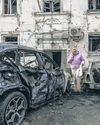
Zelensky Aims to Mend Ties
Ukrainian President Volodymyr Zelensky called his heated White House meeting with President Trump last week \"regrettable\" and set out his vision of a path to peace in his most concerted public effort yet to repair his relationship with the U.S. leader.

Adoption of New AI Tools Reshapes Coding Workforce
After years of hype and panic over how many jobs AI will extinguish or replace, it's clear the technology is bringing some big changes to the coding workforce.
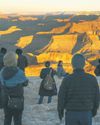
Rising Costs Take a Toll On Americans' Travel Plans
International travel remains strong, but less affluent families are scrimping on U.S. vacations

NASA Astronauts Prepare for Return Trip
At space station for months longer than planned, they focused on scientific research

The Iditarod Is Short On Snow
Dog sled race changes course, heads north

Research Delivers a Gut Punch About Emulsifiers Used in Food
New studies suggest there may be a link between the texture-tweaking agents and health risks

JPMorgan, Starwood to Lend $2 Billion for AI Data Center
Developers of a Utah data center have secured one of the biggest construction loans in recent years, the latest sign of the market's enormous appetite for facilities that provide the backbone for artificial intelligence.

Store-Brand Supplier Gets Squeezed
0.6% Decline in TreeHouse's net sales for the December quarter
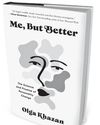
Personality's Progress
According to an old wives' tale, you should be careful about allowing your face to remain in an ugly expression, lest the winds change direction and your countenance set in place, leaving you stuck looking and feeling bad forever.
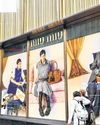
Booming Miu Miu Sales Help Prada's Results
Prada reported higher revenue for the past year after booming sales at its Miu Miu brand helped the Italian group escape a global decline in demand for luxury goods.
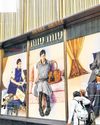
Honeywell to Acquire Pump Maker
Honeywell International struck a roughly $2.2 billion deal for pump-and-compressor maker Sundyne, extending the company's brisk pace of dealmaking.

Two Titans Battle For Crypto's Future
Stakes are high in Tether and Circle's fight over how to regulate coins

Putin Played the Long Game. It Seems to Be Paying Off.
More than a decade before Russia's armed forces poured over the border into Ukraine, President Vladimir Putin stood before world leaders and delivered a long, icy speech demanding a radical overhaul of the world order.

Pet-Sitting Or Tutoring? You'll Still Have to File Taxes
Taking on a gig job means taking on new tax responsibilities.

EU Chief Plans to Boost Bloc's Military Spending
The funding package is a sea change in the bloc's approach to defense.
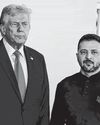
Trump's Unused Trump Card
As with Joe Biden, having a hand on Ukraine isn't the same as playing it.

Kraft Heinz to Roll Out Booze, Wooing Gen Z
Kraft Heinz, America's famed ketchup and bologna seller, is hoping you'll buy its vodka seltzers, too.

Continent's Free-Trade Era Faces Hard Test
U.S. measures threaten model that has brought gains to Canada, Mexico
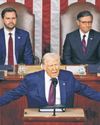
Trump Touts 'Swift and Unrelenting' Actions on Border, Budget, Economy
President Trump put his disruptive return to power on full display during a prime-time address to Congress on Tuesday night, offering a no-apologies assessment of his decisions to crack down on illegal immigration, slash the federal workforce and impose stiff tariffs on imports.

The Unlikely Team That Will Define the NFL Offseason
With a trio of marquee players due for megadeals, the Cincinnati Bengals face a roster building conundrum

High Court Wary of Suit by Mexico Against Gun Makers
The Supreme Court on Tuesday appeared skeptical about Mexico's effort to hold the U.S.'s largest gun maker legally responsible for cartel-fueled violence south of the border, in a case that tests the firearm industry's legal exposure from gun violence.

Vaccine Scrutiny Grows Under RFK Jr.
Health department reviews contracts, seeks new people on shot-advisory panel
